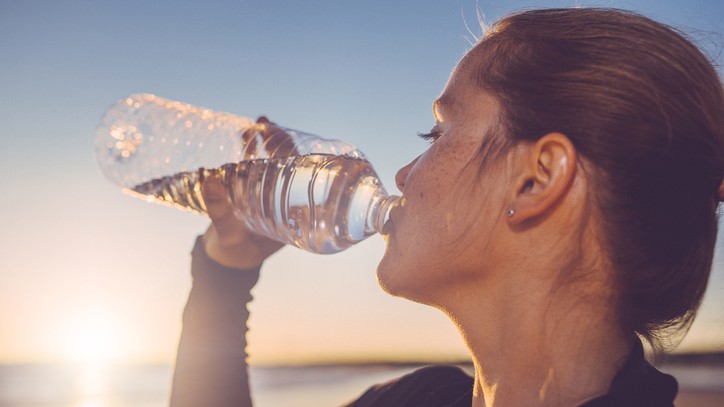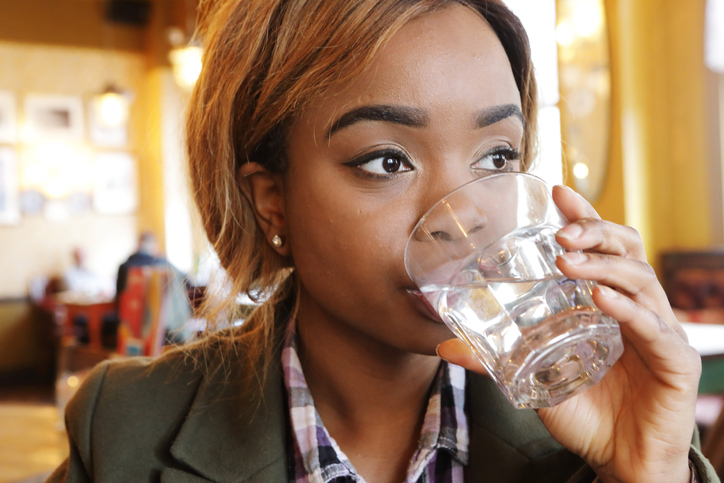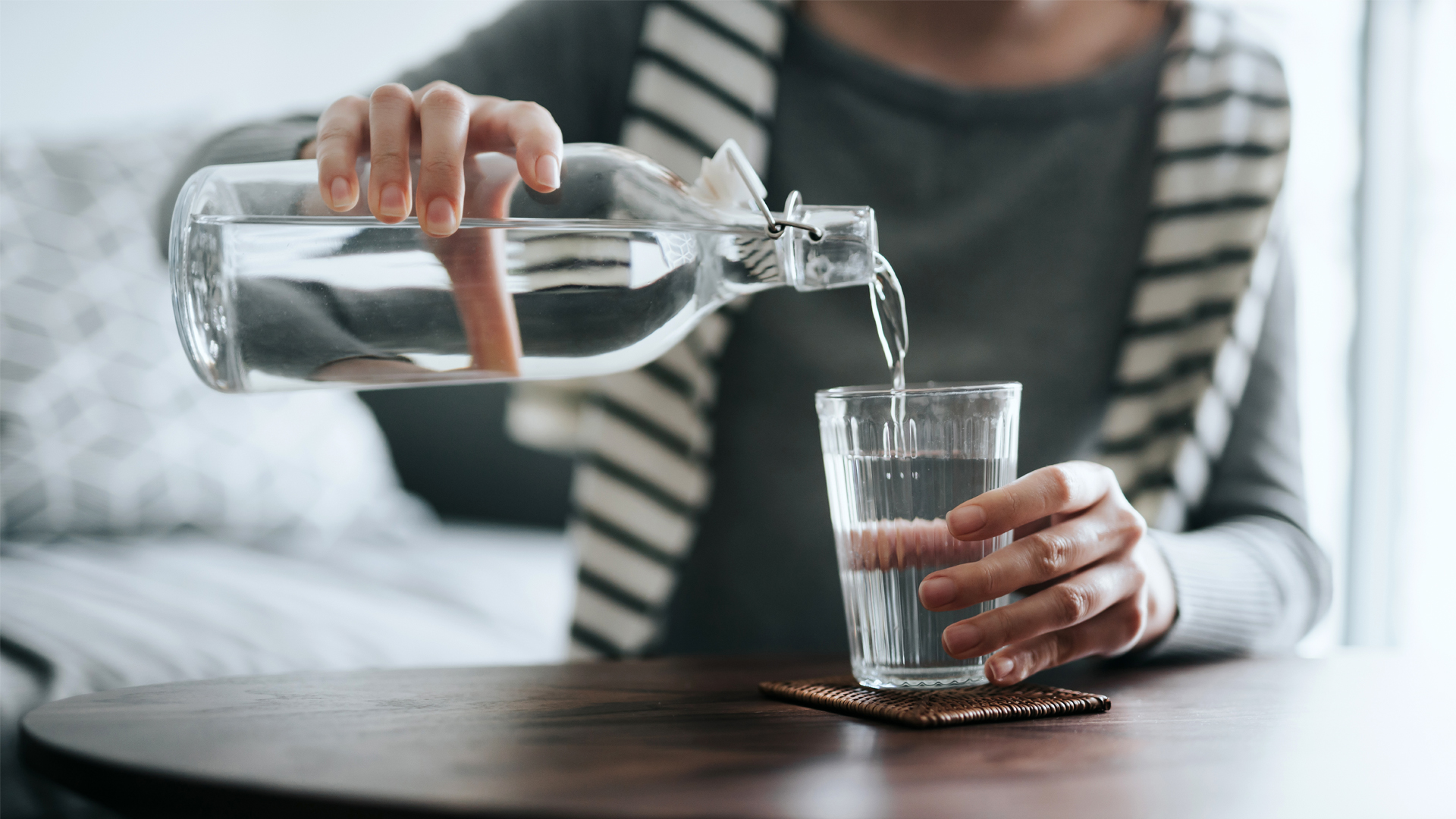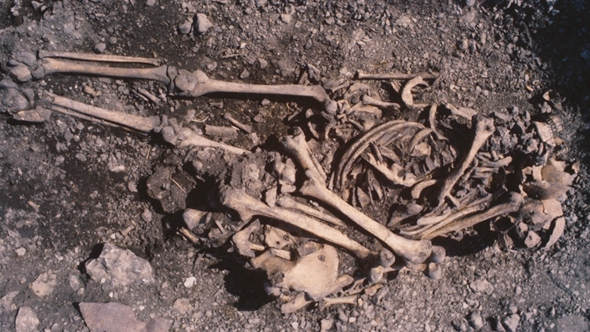Does drinking water help you lose weight?
Read on to find the answer to ‘does drinking water help you lose weight?’

Get the world’s most fascinating discoveries delivered straight to your inbox.
You are now subscribed
Your newsletter sign-up was successful
Want to add more newsletters?

Delivered Daily
Daily Newsletter
Sign up for the latest discoveries, groundbreaking research and fascinating breakthroughs that impact you and the wider world direct to your inbox.

Once a week
Life's Little Mysteries
Feed your curiosity with an exclusive mystery every week, solved with science and delivered direct to your inbox before it's seen anywhere else.

Once a week
How It Works
Sign up to our free science & technology newsletter for your weekly fix of fascinating articles, quick quizzes, amazing images, and more

Delivered daily
Space.com Newsletter
Breaking space news, the latest updates on rocket launches, skywatching events and more!

Once a month
Watch This Space
Sign up to our monthly entertainment newsletter to keep up with all our coverage of the latest sci-fi and space movies, tv shows, games and books.

Once a week
Night Sky This Week
Discover this week's must-see night sky events, moon phases, and stunning astrophotos. Sign up for our skywatching newsletter and explore the universe with us!
Join the club
Get full access to premium articles, exclusive features and a growing list of member rewards.
Does drinking water help you lose weight? The evidence certainly suggests that it can. That being said, the issue is a little more complex than simply arming yourself with one of the best water bottles and making sure you’re chugging back enough of the cold stuff. Weight loss is contingent on lots of different components working together, but there’s no denying water plays an important part.
It should come as no surprise to you that water is essential for humans. From regulating body temperature, to maintaining blood levels, to transporting nutrients to and from cells, water is one of the most important substances for humans. And yet, a lot of us are suffering with anything from mild to chronic dehydration on a daily basis.
At the same time, the rate of adults who are overweight or obese continues to grow, as does the number of people who reporting being on weight-loss or low-calorie diets. It’s clear that more of us than ever before are wanting to shed those excess pounds and get healthy and while water clearly holds the answer to curing dehydration, it may also be the key to unlocking the body’s ability to maintain a healthy weight.
Water and weight loss: An overview
Over 73% percent of adults in the US are overweight, and over 42% are living with obesity according to a CDC Report from 2018. This is not good news considering obesity and an increased BMI in general are associated with a tranche of health problems, outlined in detail in a 2017 paper in Annals of Translational Medicine. But can water really help us to lose weight, and, in doing so, give our health and wellbeing a much needed boost?
When someone is looking to lose weight, the single most important factor is energy balance, or how many calories you consume vs how many you expend. The ‘calories in’ side of the equation consists of food and drink, and the ‘calories out’ is your metabolic rate, exercise and non-exercise activity. And, the good news is, water plays a crucial role in all of this.
The first reason that water can benefit weight loss is that it’s totally calorie-free, so replacing sugary drinks, fruit juice and calorie-filled hot drinks with water can greatly reduce the number of calories you’re consuming every day. It’s probably quite obvious that eating or drinking foods that increase satiety (i.e make you feel more full) reduce the amount of food you eat, and thus your calorie intake as well, and many studies have shown that drinking water increases satiety and reduces hunger, as outlined in a review from the Proceedings of the Nutrition Society.

This is partly attributable to the fact that drinking water simply fills up the stomach and reduces feelings of hunger, and also because both thirst and hunger share some neural circuits, leading to some conflation of the two in certain individuals, according to research in Appetite.
Get the world’s most fascinating discoveries delivered straight to your inbox.
An important part of the calorie equation is exercise, as it’s the biggest part of the ‘calories out’ side that we can influence. Exercise and physical activity have been closely correlated to reductions in weight, maintenance of weight loss, and reductions in mortality risk factors, summarized in a 2018 review in Progress in Cardiovascular Diseases, and it’s natural for people to look to exercise as part of their weight loss routine.
With so many US adults dehydrated, and the body losing up to 65 fluid ounces of water per hour from sweat and respiration when exercising, many people aren’t getting the full benefit of exercise because of early fatigue due to dehydration, a process outlined in Nutrition Reviews. Between replacing calorie-filled drinks, feeling more full, and enabling more exercise, drinking water definitely seems like it can help with weight loss.
Is there evidence that drinking water can help you lose weight?
Theory is well and good, but without real evidence, it can be hard to suggest any behavioral changes. Luckily, there is decent evidence that lets us know if drinking water helps you lose weight.
Analyses from a 12-month study on 173 women were published in Obesity, and the results are fascinating. Upon recruitment, all participants were classified as overweight, and reported drinking less than 35 fluid ounces (~4 cups) of water per day. At the 2-, 6-, and 12-month point, all of the subjects’ diet, physical activity, body weight, body fat percentage and waist circumference were assessed. For diet, the researchers assessed their average daily intakes of water, calorie-free, unsweetened caloric (e.g., 100% fruit juice, milk) and sweetened caloric beverages, and food calorie intake. They found that, independent of all other factors, increases in water intake were predictive of weight loss.

Another study in Obesity compared two groups of 150 people trying to lose weight. One group was assigned to drink 24 fluid ounces of water per day, and the other was instructed to drink 24 fluid ounces of artificially-sweetened, calorie-free drinks per day. Both groups lost weight, and the artificially-sweetened group actually lost more weight, but this shows again that drinking water can help you lose weight.
Finally, a systematic review from Hospital Nutrition compiled six Randomized Controlled Trials on the effects of water on weight loss, and found that subjects lost between 0.4kg and 8.8kg (0.9lb and 19.5lb) with an average percentage weight loss of 5.15%. These studies used various water drinking tactics: increasing daily water intake, replacing caloric beverages with water, and drinking water before meals. This is very solid evidence that drinking water can help you lose weight, especially when paired with other weight loss tactics like reducing calories and exercising.
Is there an optimum time to drink water to lose weight?
It’s clear that figuring out how to drink more water will be beneficial if you’re trying to lose weight, but are there times in the day that drinking water is more conducive to weight loss? Absolutely!
There are two clear times that are best: when you’re hungry, and right before meals. As discussed above, thirst and hunger signals can be conflated in some individuals, so your hunger signal may actually be thirst. And if it is hunger, drinking water can help you feel full by literally filling your stomach with water.
There is also decent evidence that drinking water immediately before a meal can help you eat less at that meal by making you fuller sooner. Weight loss aside, when it comes to how to stay hydrated, drinking water when you’re thirsty is also an excellent idea to ensure your body continues to function at its best.
Putting it all together
If you’re looking to lose weight, deliberately drinking more water is a great idea. It can help you feel full, especially if you drink when hungry and/or right before a meal, it’s calorie-free, it can help you maintain exercise performance, and there is plenty of longer-term evidence to suggest that it can help improve and maintain weight loss. It can be difficult to remember to drink water, and you may not always have a glass and faucet nearby, so having a water bottle in easy reach is a great visual reminder to drink up.
References
Abdelaal, M., le Roux, C. W., & Docherty, N. G. (2017). Morbidity and mortality associated with obesity. Annals of Translational Medicine, 5(7), 161. https://www.ncbi.nlm.nih.gov/pmc/articles/PMC5401682/
FastStats. (2021, September 10). Overweight Prevalence. Retrieved April 14, 2022, from https://www.cdc.gov/nchs/fastats/obesity-overweight.htm
Jiménez Cruz, A., Bracamontes-Castelo, G., & Bacardí-Gascón, M. (2019). Effect of water consumption on weight loss: a systematic review. Nutrición Hospitalaria. https://pubmed.ncbi.nlm.nih.gov/31657610/
Peters, J. C., Beck, J., Cardel, M., Wyatt, H. R., Foster, G. D., Pan, Z., Wojtanowski, A. C., Vander Veur, S. S., Herring, S. J., Brill, C., & Hill, J. O. (2015). The effects of water and non-nutritive sweetened beverages on weight loss and weight maintenance: A randomized clinical trial. Obesity, 24(2), 297–304. https://pubmed.ncbi.nlm.nih.gov/26708700/
Shirreffs, S. M. (2005). The Importance of Good Hydration for Work and Exercise Performance. Nutrition Reviews, 63, S14–S21. https://pubmed.ncbi.nlm.nih.gov/16028568/
Stevenson, R. J., Mahmut, M., & Rooney, K. (2015). Individual differences in the interoceptive states of hunger, fullness and thirst. Appetite, 95, 44–57. https://pubmed.ncbi.nlm.nih.gov/26119812/
Stookey, J. D., Constant, F., Popkin, B. M., & Gardner, C. D. (2008). Drinking Water Is Associated With Weight Loss in Overweight Dieting Women Independent of Diet and Activity. Obesity, 16(11), 2481–2488. https://pubmed.ncbi.nlm.nih.gov/18787524/
Swift, D. L., McGee, J. E., Earnest, C. P., Carlisle, E., Nygard, M., & Johannsen, N. M. (2018). The Effects of Exercise and Physical Activity on Weight Loss and Maintenance. Progress in Cardiovascular Diseases, 61(2), 206–213. https://pubmed.ncbi.nlm.nih.gov/30003901/
Welch, R. W. (2011). Satiety: have we neglected dietary non-nutrients? Proceedings of the Nutrition Society, 70(2), 145–154. https://pubmed.ncbi.nlm.nih.gov/21275081/
Will McAuley is a London-based Personal Trainer and Nutrition Coach who’s writing has appeared in Men’s Fitness and GQ magazine, covering exercise, nutrition and health. He has a Master’s degree in Strength & Conditioning from Middlesex University in London, is a published scientific author in the Journal of Strength and Conditioning Research, and holds a Bachelor’s degree in Linguistics from Trinity College Dublin.
 Live Science Plus
Live Science Plus











